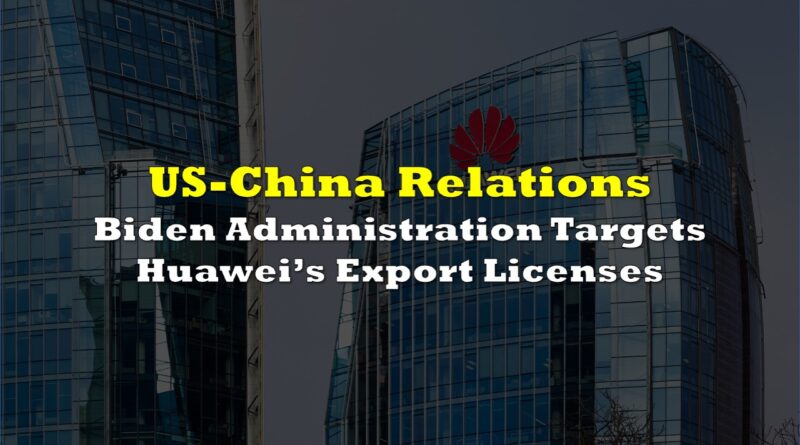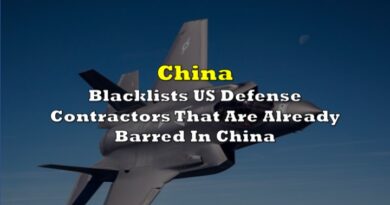Biden Administration Targets Huawei’s Export Licenses
As tensions between the United States and China continue to intensify following the spy balloon incident and concerns over lending arms to Russia, attention has shifted to revoking export licenses that allow US suppliers to sell to Huawei Technologies Co., the Chinese telecommunications giant over national security concerns.
“The policy that had allowed exports to Huawei, notwithstanding the entity listing, is being wound down,” a former senior security official told the Wall Street Journal. “The White House is now telling Commerce, ‘Cut off the 4G sales, the time has come to do more pain to Huawei, to try to finish their demise,’” the former official added.
The source was referring to the Commerce Department’s entity list, which specifies companies that US firms are prohibited from trading particular US technology with unless a special license is obtained. Huawei was added to the entity list by the Bureau of Industry and Security (BIS) in 2019 over concerns that the Chinese government could use Huawei’s 5G wireless networking tech to spy on US telecommunications.
The move — which would revoke licenses that have already been issued by the BIS — builds on the administration initially considering not granting any new export licenses for US chip makers to trade with Chinese-affiliated companies.
Revoking special licenses enacted during the previous administration would mean US companies will be prohibited to trade not just products that run 5G technology but also older 4G technology that security analysts say could still be used for military purposes, such as precision-guided bombs.
“All those things are under assessment,” Alan Estevez, the Commerce Department’s undersecretary for industry and security told the House Foreign Affairs Committee on Tuesday. “We are doing everything within our power to prevent sensitive US technologies from getting into the hands of malign actors,” he said, adding that the Biden administration is also mulling over heightened export controls.
But US chip makers say that the move could cost the industry millions of dollars — and much of that revenue is allocated for domestic research and development. Data released by Texas Representative and Foreign Affairs Committee chairman Michael McCaul show that the BIS approved more than $23 billion in special license applications to sell to Chinese-affiliated companies.
Information for this briefing was found via the Wall Street Journal, CNN, and the sources and companies mentioned. The author has no securities or affiliations related to the organizations discussed. Not a recommendation to buy or sell. Always do additional research and consult a professional before purchasing a security. The author holds no licenses.




